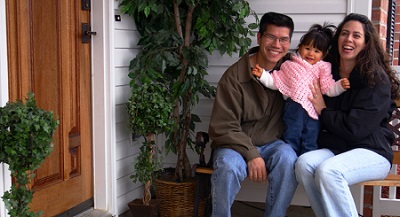Reverse Mortgage Eligibility and Guidelines
By Carolina Palmer Updated on 7/20/2017.jpg)
The Home Equity Conversion Mortgage (HECM) is the only reverse mortgage insured by the U.S. Government.
This program allows senior homeowners to convert a portion of their home equity into cash. Equity is the current cash value of a home minus the current loan balance.
This program does not require you to sell your home or take on additional monthly debt payments.
Eligibility Requirements
- The homeowner must be at least 62 years old
- The property must be the borrower’s primary residence
- The homeowner must meet with an HECM counselor to receive consumer information
- The homeowner must not have any delinquencies on any federal debt
- Minimal income and credit requirements
- The homeowner should own at least 40% of the equity on the home
Types of homes that are eligible
- Single family home or a 2-4 unit home with one unit occupied by the borrower
- HUD-approved condominiums and manufactured homes that meet FHA requirements
Benefits
- FHA insured
- The homeowner continues to retain ownership of the property
- No monthly mortgage payments required
- Adjustable and fixed rate options available
- The funds received can be put towards anything the homeowner desires. They can receive these mortgage funds all at once, in monthly advances, through a line of credit, or any combination of these.
Get started by using a reverse mortgage calculator to see if enrolling in the program would be advantageous.
Reverse Mortgage Guidelines
No Income or Employment Verification
While the HUD does not enforce a minimum amount of equity, borrowers can only secure a reverse mortgage if the funds from the transaction are sufficient to pay off the original mortgage. Applicants do not need to conform to any income guidelines since the value of the loan depends on the value of the home, rather than income.
However, the homeowner must have adequate income to pay property taxes and insurance.They may use the reverse mortgage to supplement their income.
No Monthly Payments
Unlike traditional mortgages, reverse mortgages never require that owners make monthly payments. This prevents them from facing the threat of default or foreclosure. Reverse mortgages do not put borrowers at risk of losing their homes, which makes them a safer option than Home Equity Loans.
A reverse mortgage is a non-recourse loan. This is beneficial because it means even if the value of the home decreases, the borrower will never owe more than the value of their home.
Home Condition Requirements
With a traditional mortgage, home condition terms are nonexistent after the home is purchased, and homeowners are not obligated to keep their homes in good condition while paying off the mortgage.
For qualifying seniors of reverse mortgages, however, homeowners must maintain the home in good repair since the lender wants to guarantee that the house retains its market value.
The homeowner is still responsible for paying property taxes, utilities, and hazard and flood insurance premiums.
Lenders handling reverse mortgages will collect the loan balance once the home is sold or the mortgage holder passes away. Reverse mortgage lenders must keep the loan balance plus interest under the value of the home to avoid losing money.
No assets other than the home must be used to repay the debt.
Equity Utilization
Borrowers with traditional mortgages must make a down payment on a house and assume a mortgage loan to cover the remaining funds. By making monthly payments, the borrower accumulates equity in the home, working toward full ownership.
Reverse mortgage borrowers already own the property and instead begin to withdraw money that represents the home’s accumulated equity.
Interest Payment
Seniors with traditional mortgages must pay monthly interest fees in addition to mortgage payments. Conversely, reverse mortgages require no interest payments until the borrower no longer lives in the home, instead of accumulating and compounding over the loan term.
Additional Fees
Both traditional and reverse mortgages have fees for qualification and approval costs. The homeowner may have to pay mortgage insurance premiums. Reverse mortgages may also include a servicing fee for seniors who choose to have their reverse mortgage equity paid in monthly installments or made available as open credit.
The homeowner can get these charges financed or pay for it using the proceeds from the loan.

Didn't find the answer you wanted? Ask one of your own.
-
 Low and No Down Payment Mortgage Options
View More
Low and No Down Payment Mortgage Options
View More
-
 Advantages & Disadvantages of A Second Mortgage
View More
Advantages & Disadvantages of A Second Mortgage
View More
-
 How A Credit Score Rating Impacts Your Mortgage
View More
How A Credit Score Rating Impacts Your Mortgage
View More
-
 The 5 Most Common Mistakes That Lead to Mortgage Delays
View More
The 5 Most Common Mistakes That Lead to Mortgage Delays
View More
-
 Mortgage Fees You Can Avoid
View More
Mortgage Fees You Can Avoid
View More
-
 3% Down Payment Conventional Mortgages for First Time Home Buyers
View More
3% Down Payment Conventional Mortgages for First Time Home Buyers
View More
-
 Where to Find Manufactured Home Loans
View More
Where to Find Manufactured Home Loans
View More
Related Articles
Ask our community a question.
Searching Today's Rates...

Featured Lenders
Kat Whitman
Whitman Met, Inc.
Sacramento, CA
Cameron Burke
Vision One Mortgage
Huntington Beach, CA
Lisa Stepp
RBS Citizens
Clifton Park, NY

